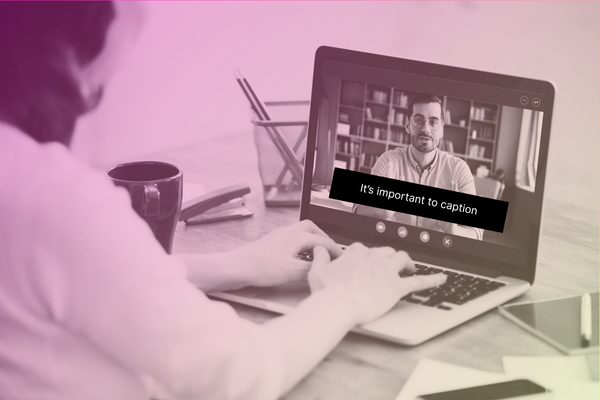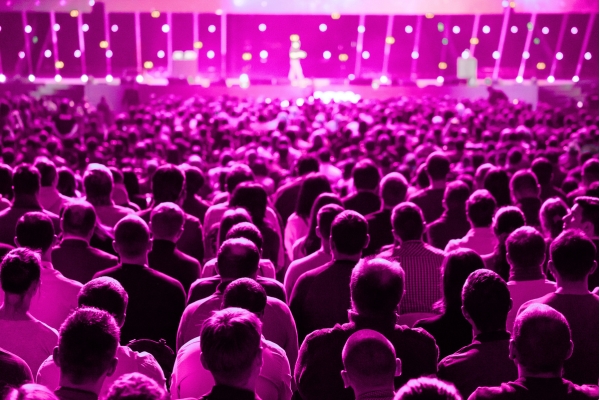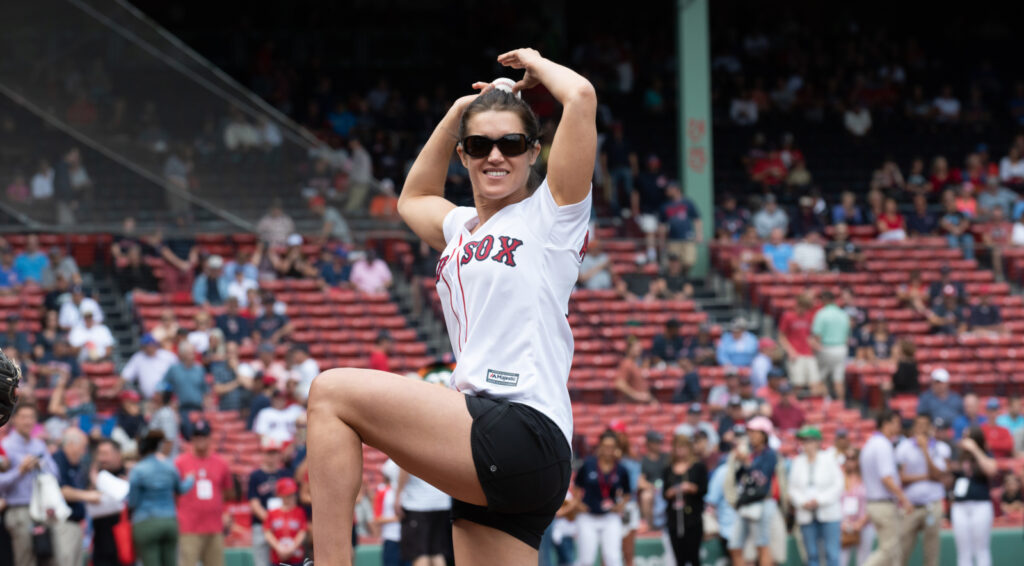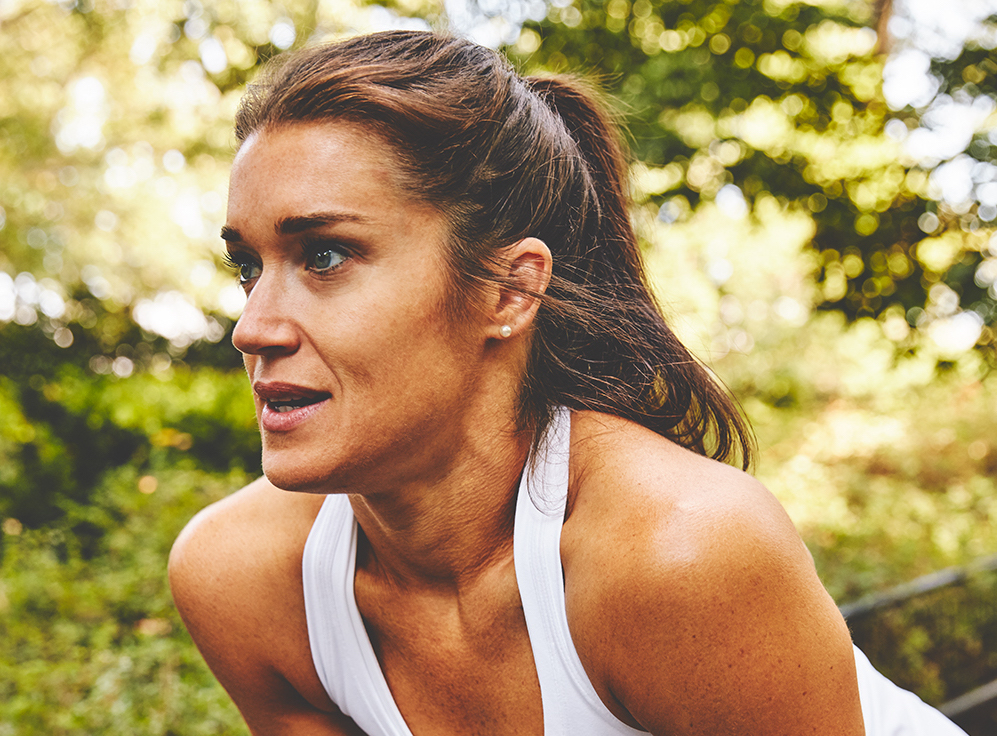
What is Usher Syndrome?
REBECCA ALEXANDER: Usher syndrome is the leading genetic cause of combined deaf-blindness in this country and around the world. We believe that there are about 400,000 people affected of which 1% has actually been identified in terms of their genotype.
There are three different types of Usher syndrome. I have Usher syndrome type 3 […]and type 3 is the mildest onset of both progressive vision and hearing loss, which means that your hearing loss and your vision loss usually start a little bit later, but they’re both progressively deteriorating.
How does having Usher Syndrome affect you?
REBECCA ALEXANDER: A normally sighted person has about 180 degrees of vision when looking straight ahead, and I have about somewhere between 10 to 15 degrees with my central-most vision.
“There are not […] even […] five minutes that go by that I’m not reminded or really humbled by my circumstances.”
I didn’t really start wearing hearings aids until I was about 18 or so. I was cochlear implanted on my right side in 2013, and I was cochlear implanted on my left side last December of 2017. And so without my cochlear implants now, I am completely deaf. I could have a marching band come through the room, and unless I hear the vibration of it, I wouldn’t hear it, so […] when I say that I’m deaf, I mean it.
So [having Usher Syndrome] really is a part of everything that I do in my life. There are not […] even […] five minutes that go by that I’m not reminded or really humbled by my circumstances.
REBECCA ALEXANDER: I make sure that […] we have the descriptive captioning [on social media] so that any picture we have we make sure whatever’s in the photo is described for the visually impaired or for the blind, so that can be read to them by the voiceover on their phones.
“There’s not a fluidity yet to being a visually-impaired person and being able to go online and find things easily.”
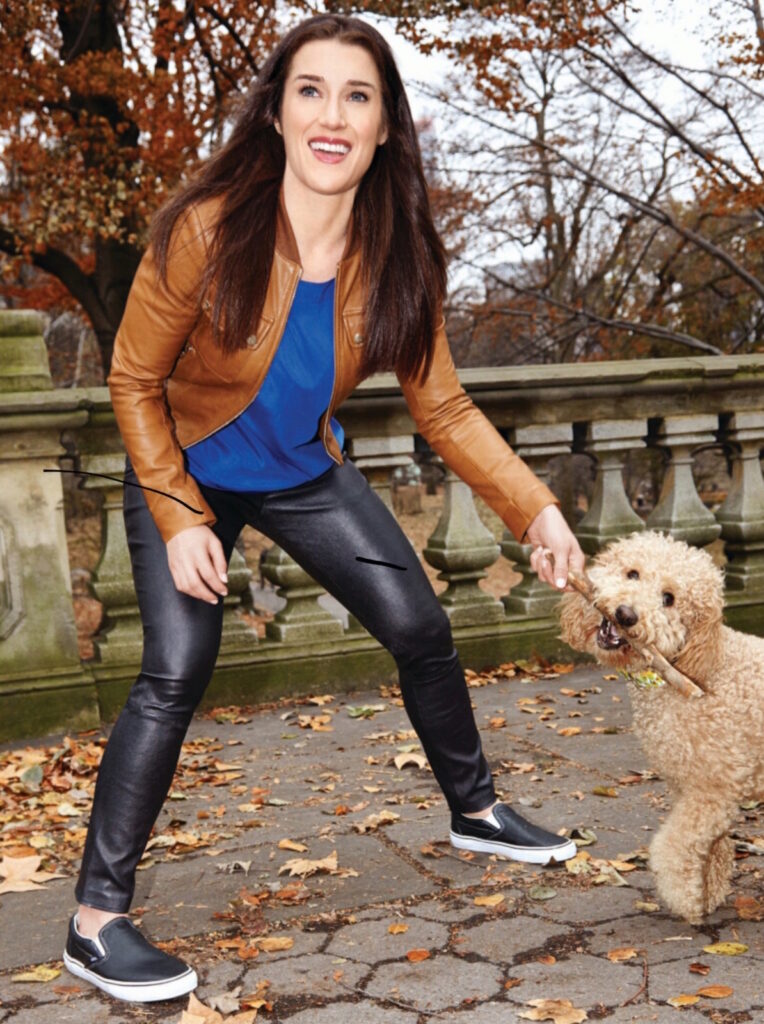
Oftentimes, they have those little parts that they don’t want you to see [in an email], like ‘unsubscribe,’ in very faint gray print or light blueprint. For a visually-impaired person, it’s very difficult to find that, and it’s just an added burden to the process. I think that there should be an option to make everything bold if you need to.
[Web accessibility] certainly has gotten better. It’s not perfect by any means, and it certainly has a long way to go. There’s not a fluidity yet to being a visually-impaired person and being able to go online and find things easily. I do think that there’s a long way to go.
That’s the visual part, the hearing part is the captioning. That’s something that there should be more of. If you’re going to post [a video], there should be the ability to have it captioned because even for people who aren’t deaf or [hard-of-hearing], it can be difficult to hear videos.
What do you wish that fully-sighted and fully-hearing people could know about your experience?
REBECCA ALEXANDER: Oftentimes when people publish stories about me and Usher syndrome, the first thing that they say is, ‘Rebecca Alexander is being robbed of her vision and hearing.’ [They’ll say] ‘People who suffer from Usher syndrome.’ Certainly, there is a lot of suffering involved. Life is suffering. We are all suffering in some form. To be honest, going both deaf and blind, I feel like I have a much more fulfilling and meaningful life than many people who are fully sighted and [have] full hearing.
The last thing I want from people is pity. The last thing I want from people is to see me as suffering. What I want people to have is a sense of what they have, of how fortunate they are. Instead of focusing on all the things that aren’t going right in their lives, focusing on all the things that are going right, focusing on all the things that they can do and not the things that they can’t do. There are so many of us who work twice as hard to be able to accomplish what somebody who is fully sighted and fully hearing can do.
What does helping others mean to you?
REBECCA ALEXANDER: I think that part of what’s so important about being in a helping profession and helping others just in our everyday lives is that it reminds us that we matter. There’s nothing more important in this life than to know that we matter. And one of the best ways that we can recognize and realize that is by offering to help other people. Because when we offer to help somebody else or when somebody asks us for help and we give it to them, it reminds us that who we are and what we do in this world matters. And I think that’s incredibly important.
Any final thoughts for our readers?
REBECCA ALEXANDER: People…see me as this cheerleader, this role model, if you want to call it that, for people with disabilities. What they don’t see is that my experience is very similar to others…I allowed myself to cry. I allowed myself to mourn […] what I have lost. In doing that, I’m able to move forward and be fully present for what I’m dealing with in front of me.
“Having a condition like this requires you to accept your vulnerability; it’s a very, very difficult thing to do.’”
I think that so many people try to avoid what’s happening to them […] all in an effort to avoid what they’re most afraid of and that is their own vulnerability. Having a condition like this requires you to accept your vulnerability; it’s a very, very difficult thing to do.
I think that sometimes people look at someone like me and think that I’m invincible, and I’m not. The only difference is that I really allow people to know that this is who I am, that I’m going both deaf and blind. Most importantly, I’m not ashamed of it.

